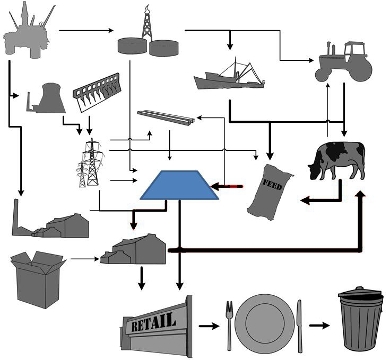Research project
Evaluating Asian aquaculture using Life Cycle Assessment (LCA)
Are there significant differences among the environmental impacts resulting form the production of Asian aquaculture commodities and what are the main causes for these?
- Duration
- 2010 - 2015
- Funding
-
 This project is funded by the ERC FP7 project Sustainable Development Global Change and Ecosystem (222889)
This project is funded by the ERC FP7 project Sustainable Development Global Change and Ecosystem (222889)
- Partners
Partners
- Institute of Aquaculture, University of Stirling, United Kingdom
Short abstract
Europe is importing an increasing amount of aquaculture products from Asia, while the environmental effects of this are poorly mapped.
Project description
The research is carried out as part of the
EU FP7 SEAT project . The goal of the project is to inform policy makers in Europe on the environmental consequences of the increasing imports of Asian aquaculture products and guide consumers towards more sustainable seafood choices.

The lifecycle of aquaculture products involves agriculture, capture fisheries, livestock production, electricity generation, processing, etc.
LCA was used to quantify different environmental impacts and identify the less detrimental production systems. A protocol for quantifying dispersions around results was also developed and used to achieve statistically supported conclusions.
Feed provision presented a hot-spot in all evaluated production chains, with agricultural pesticides and regionally produced fishmeal standing out as especially problematic. Also effluent water and sediment from farms, the use of chlorine releasing compounds, energy use for paddlewheels, and coal power were environmentally controversial.
The project is now coming to an end and several publications have been issued on LCA methodology and the environmental impacts of Asian aquaculture. These outcomes will, hopefully, be used by policy makers, certification bodies and industry partners to guide consumers towards more sustainable seafood choices.
CML has a long history with developing the LCA methodology and the advancements for quantifying the uncertainties around LCA results developed during the present project would not been possible without the fundamental knowledge at the department.
